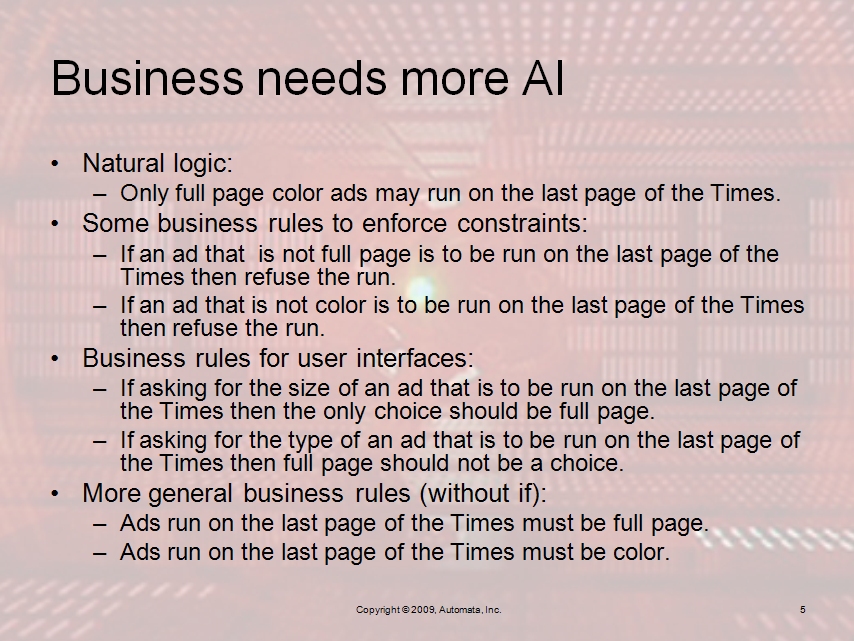The call transcript from TIBCO’s Dec 21 review of Q4 results is great reading. Starting from a simple Rete Algorithm and the insightful acquisition of Spotfire, TIBCO has transformed itself from a technical middleware vendor to a promising enterprise platform.
TIBCO has a long way to go in making its business optimization offerings less technical, but for those that can tolerate less alignment between IT and the business than may be ideal, TIBCO is leading the way in integrating technical agility with business visibility.
It will be tough for Oracle or IBM or SAP to close the gap with what TIBCO has. Don’t be surprised if rule-based event-driven business processing drives the acquisition of TIBCO by one of these over the next two years. The growth rate certainly justifies it! And it won’t stop.

